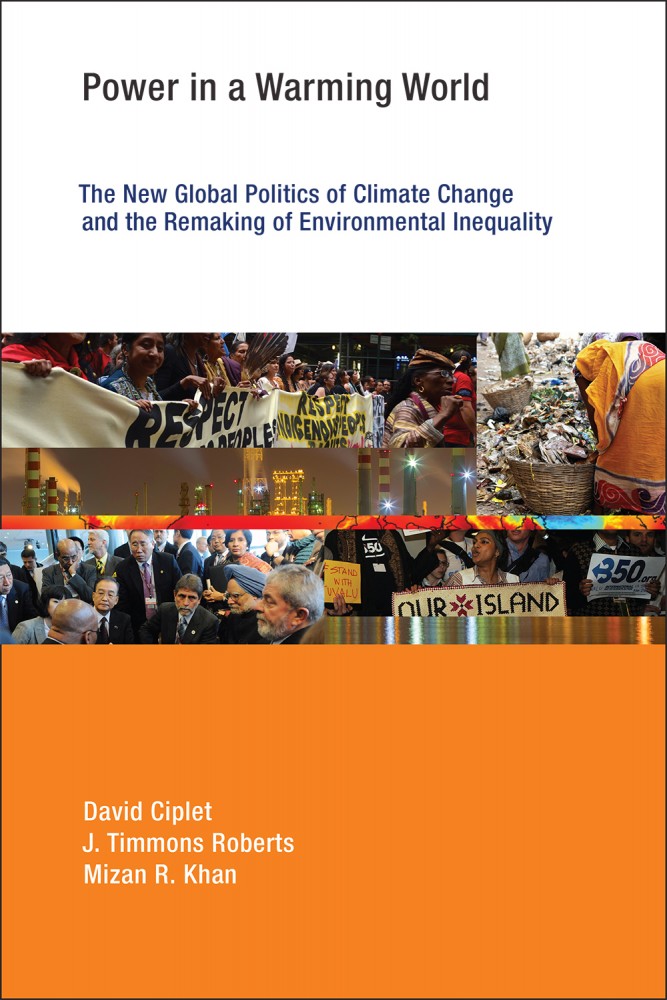A new book released this week from MIT Press explores a question relevant to us all: How did we arrive at an inequitable and scientifically inadequate international response to climate change, and how can we shift course?
 After nearly a quarter century of international negotiations at the United Nations on the issue of climate change, the authors argue that we stand at a crossroads. Representatives from countries around the world will gather in Paris this December to chart a path forward.
After nearly a quarter century of international negotiations at the United Nations on the issue of climate change, the authors argue that we stand at a crossroads. Representatives from countries around the world will gather in Paris this December to chart a path forward.
A new set of agreements is likely to fail to prevent the global climate's destabilization. Islands and coastlines face inundation, and widespread drought, flooding, and famine are expected to worsen in the poorest and most vulnerable countries.
Much can still be done, the authors argue, to prevent the most severe climate change impacts. However, any such efforts will have to contend with powerful coalitions that aggressively cling to the fossil fuel economy of the last century.
In Power in a Warming World, recent IBES PhD recipient David Ciplet, IBES Fellow J. Timmons Roberts, and Mizan Khan bring decades of combined experience as negotiators, researchers, and activists to bear on this urgent topic. Combining rich empirical description with a political economic view of power relations, they document the struggles of states and social groups most vulnerable to a changing climate, and describe the emergence of new political coalitions that take climate politics beyond a simple North-South divide, and that push action on climate change far beyond the United Nations.
In his endorsement of the book, writer-activist Bill McKibben explains, "We've long since won the argument about climate change; we've just lost the fight. And that's because it's not about data, it's—as these authors powerfully document—about power. It's held by the fossil fuel industry, and it has to be taken by the rest of us; all who read this volume will find themselves more empowered in that debate."
The book explores how many citizens are now confronting the fossil fuel industry-– the main contributor of climate changing emissions—directly. Student campaigns have pushed institutions such as Stanford, Oxford, and most recently, the entire University of California system to remove their investments from dirty energy sources. Others are disrupting fossil fuel pipelines and powerplants and others are building alternatives.
In the face of inaction at the national and international level, many towns, cities and states have also taken matters into their own hands. They are making pledges of emissions reductions, and redesigning transportation, energy, and waste systems. These efforts are demonstrating that addressing climate change is both a moral imperative, and a sound business decision -- particularly in the face of plummeting costs of energy from renewable sources such as wind and solar installations.
But will these efforts add up to enough to avert a climate catastrophe? Ciplet, Roberts and Khan offer six future scenarios in which power relations continue to shift as the world warms. A focus on incremental market-based reform, they argue, has proven insufficient for challenging the enduring power of fossil fuel interests, and will continue to be inadequate without a bolder, more inclusive and aggressive response.
To view the book listing, images, contents, and more quotes, please visit: https://mitpress.mit.edu/books/power-warming-world
For more information, contact:
David Ciplet (510) 846-5020, david.ciplet@colorado.edu
Timmons Roberts (401)4412103, timmons@brown.edu